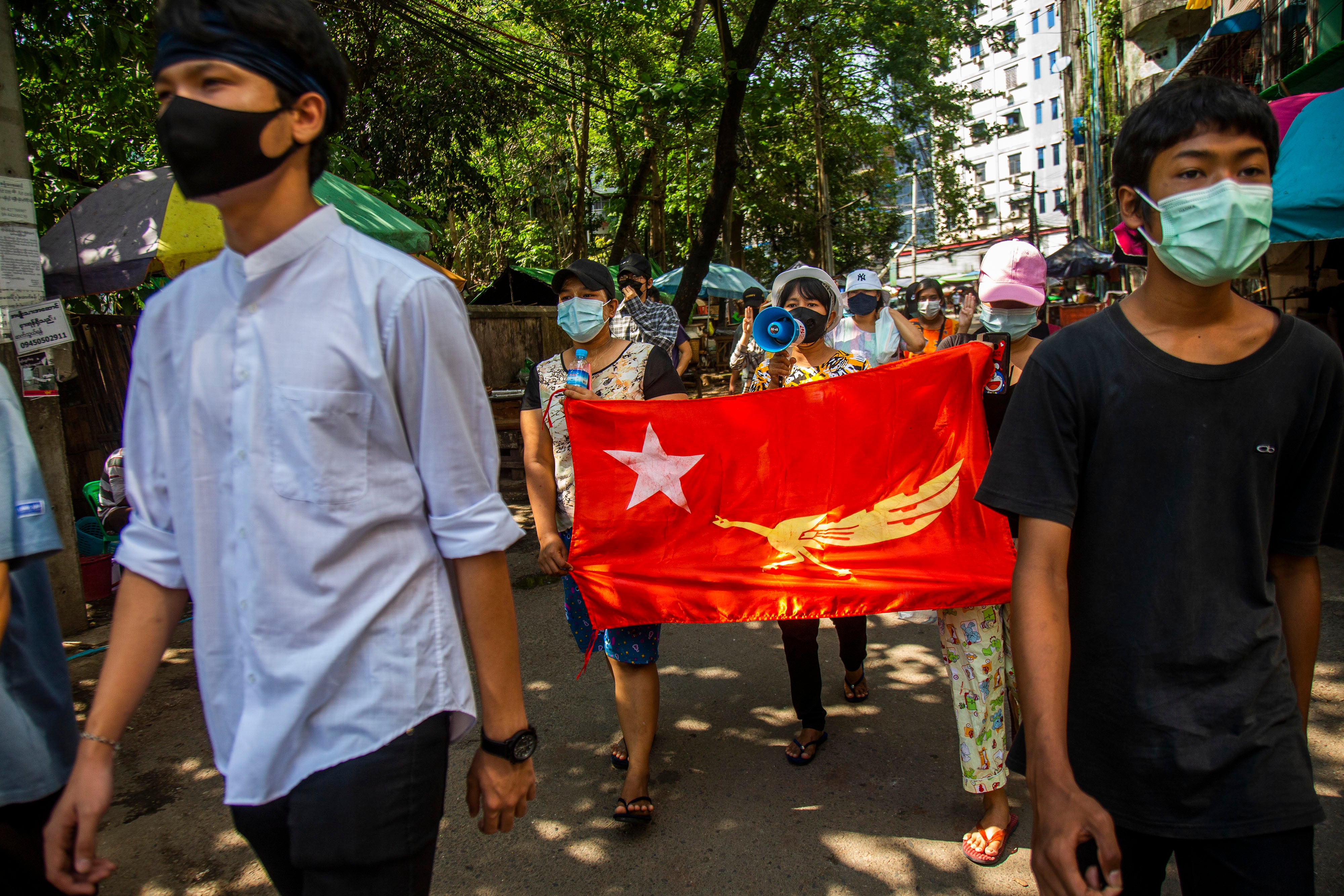US urges arms embargo and sanctions against Myanmar military
The United States is urging the international community to take “concrete action” against the military in Myanmar — including an arms embargo and sanctions against its holding companies and those who profit from them

Your support helps us to tell the story
From reproductive rights to climate change to Big Tech, The Independent is on the ground when the story is developing. Whether it's investigating the financials of Elon Musk's pro-Trump PAC or producing our latest documentary, 'The A Word', which shines a light on the American women fighting for reproductive rights, we know how important it is to parse out the facts from the messaging.
At such a critical moment in US history, we need reporters on the ground. Your donation allows us to keep sending journalists to speak to both sides of the story.
The Independent is trusted by Americans across the entire political spectrum. And unlike many other quality news outlets, we choose not to lock Americans out of our reporting and analysis with paywalls. We believe quality journalism should be available to everyone, paid for by those who can afford it.
Your support makes all the difference.The U.S. ambassador to the United Nations urged the international community to take “concrete action” against the military in Myanmar on Friday including an arms embargo and sanctions against its holding companies and those who profit from them, saying this is the only way to change the military’s crackdown on civilians following its Feb. 1 coup.
Linda Thomas-Greenfield made the appeal at an informal virtual meeting of the U.N. Security Council where Zin Mar Aung, a leader of a post-coup committee representing elected members of Myanmar’s parliament, urged all U.N. member nations to increase political, financial and security measures against the military “until the military’s violent attacks on civilians stop and Myanmar returns to the rule of law under civilian and democratic rule.”
Aung said the military has escalated armed violence in the last two weeks in ethnic states including Karen, Shan and Kachin, and before Friday’s council meeting, military forces known as the Tatmadaw used live munitions and even rocket-propelled grenades to attack civilians in Bago Township south-central Myanmar. “The ambulances are not allowed to enter the area even though there have been dozens of civilian casualties,” she said.
The coup reversed years of slow progress toward democracy in Myanmar, which for five decades had languished under strict military rule that led to international isolation and sanctions. As the generals loosened their grip, culminating in Aung San Suu Kyi’s rise to leadership in 2015 elections, the international community responded by lifting most sanctions and pouring investment into the country.
The Security Council has called for a reversal of the coup, strongly condemned the violence against peaceful protesters, called for “utmost restraint” by the military, stressed the need to uphold “democratic institutions and processes” and urged the immediate release of detained government leaders including Suu Kyi and President Win Myint. It also urged military leaders to allow the U.N. special envoy to Myanmar, Christine Schraner Burgener, to visit without preconditions.
But Schraner Burgener, who just arrived in Bangkok, tweeted Friday: “I regret that Tatmadaw answered me yesterday that they are not ready to receive me. I am ready for dialogue. Violence never leads to peaceful sustainable solutions.”
U.N. deputy spokesman Farhan Haq said later Friday that Secretary-General Antonio Guterres still hopes she will be able to visit.
Addressing the people of Myanmar, U.S. envoy Thomas-Greenfield said every statement adopted by a united Security Council been followed by further violence by the military against its people, “and we cannot allow them to succeed.”
“I want you to know that the United States stands with you. And we will do everything in our power, in coordination with our allies and our partners, here in the Security Council and elsewhere, to help you deal with this terrible situation,” she said.
Thomas-Greenfield said “the military’s brutality” against Rohingya Muslims in Rakhine state three years ago sent hundreds of thousands of people fleeing to Bangladesh, and the current violence has seen thousands flee into Thailand and hundreds try to flee into India.
“I say categorically, we cannot -- we simply cannot -- allow the military to destabilize the region once again through its unrelenting campaign of violence, their campaign of repression, and especially -- especially -- against the backdrop of an unprecedented global pandemic,” she said.
“At this point, only concrete action will change the military calculus,” Thomas-Greenfield stressed. “That action can take many forms. ... These steps include sanctions against the military, its holding companies, and anyone who seeks to profit off the violence,” an arms embargo, and ensuring “that members of the military who engage in atrocities and other abuses against their own people will be held to account.”